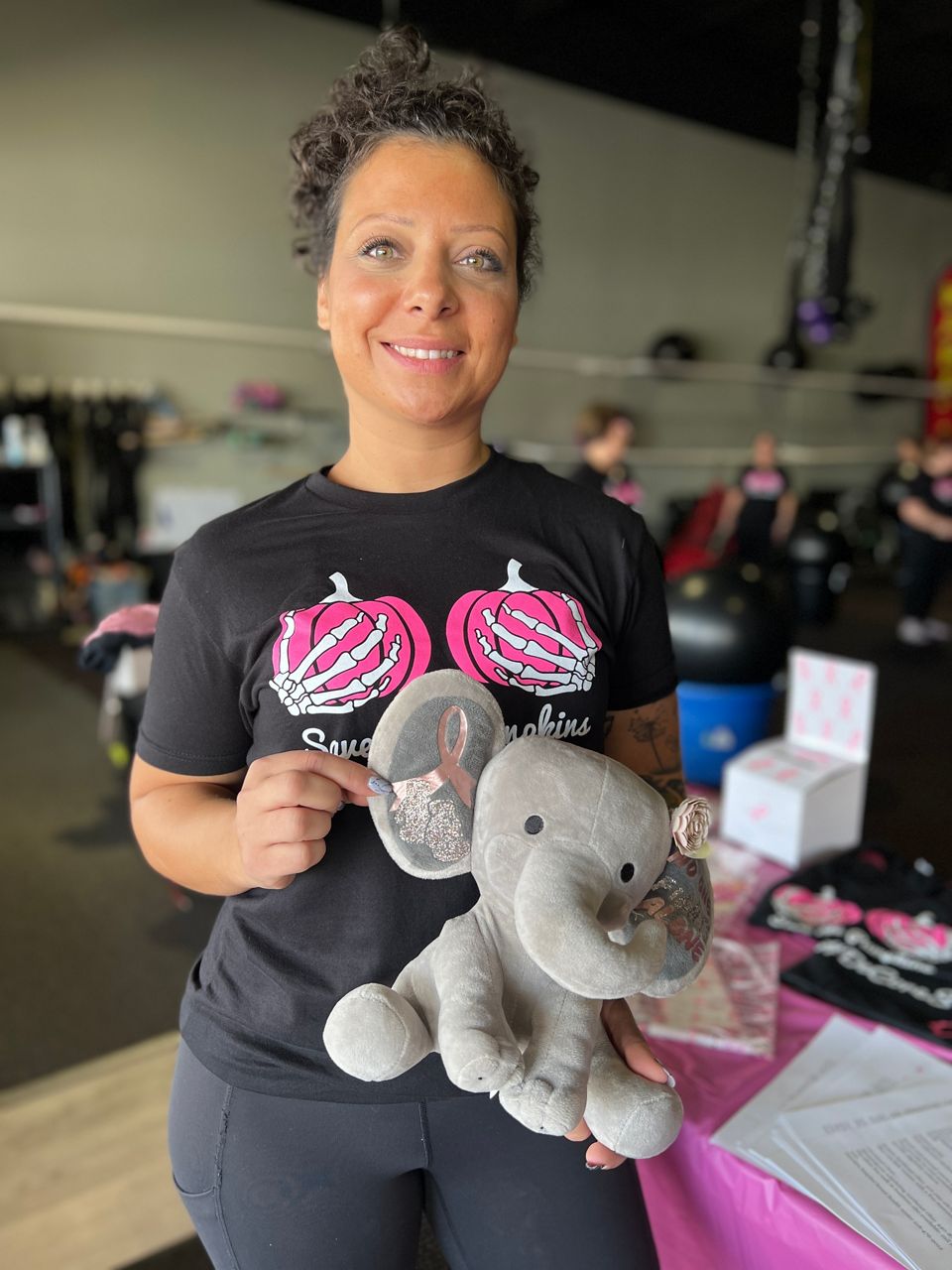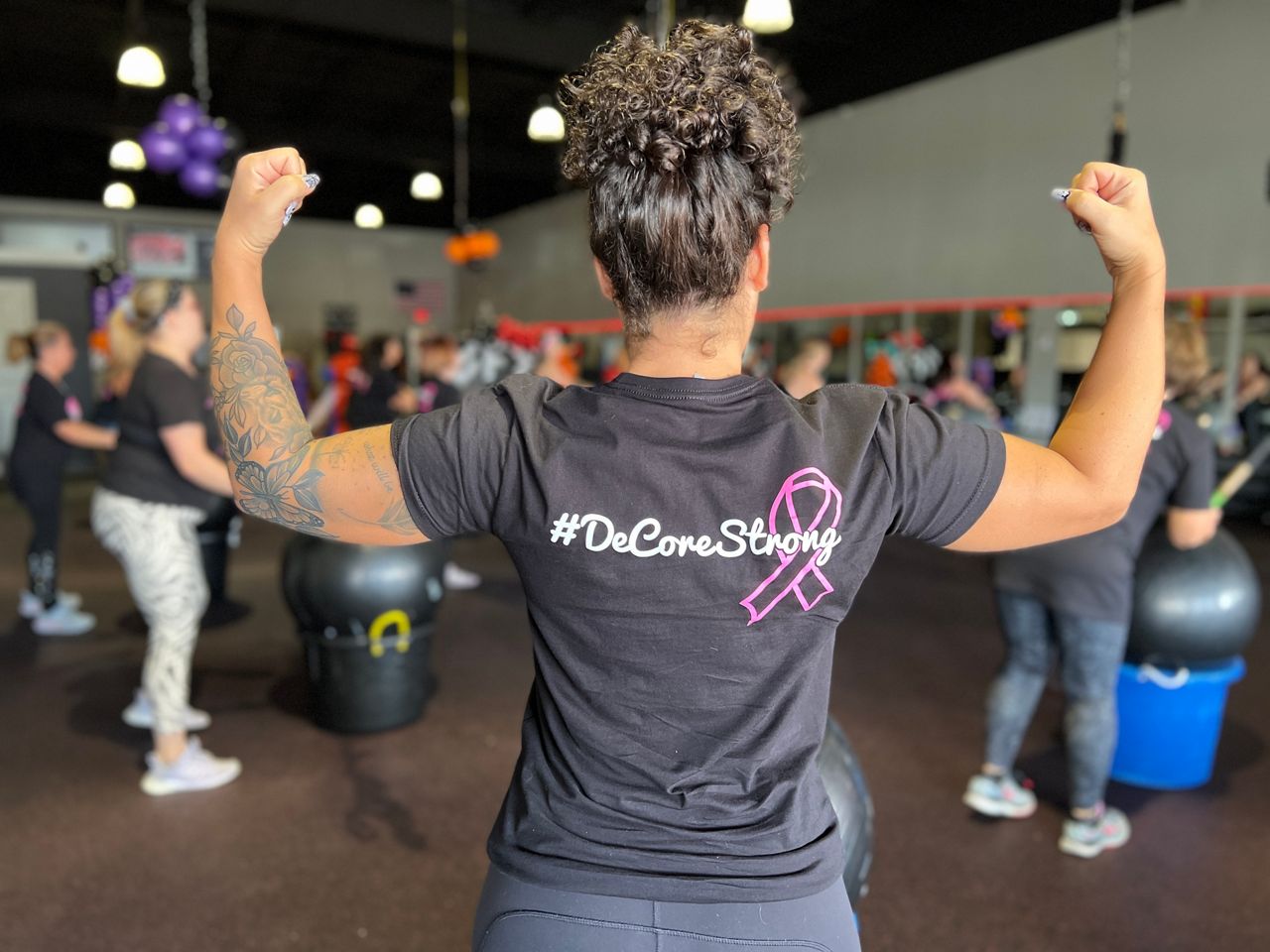MIDDLEBURG HEIGHTS, Ohio — Most days of the week, Nicole DeCore is doing what she loves most, working out.
DeCore is the owner of Innovative Fitness, a gym in Middleburg Heights that offers unique fitness classes like kangaroo jump, bungee and drum and tone.
For years, her passion has been teaching others about the benefits of fitness, but in 2020, it expanded.
“I had a double mastectomy, two more surgeries following that, I had chemo, and I had radiation,” DeCore said.
She was diagnosed with bilateral breast cancer at 34, and she now advocates for early detection. Every October she hosts a fundraiser at her gym to raise money for the Cleveland Clinic Moll Cancer Center, where she got treated, and to encourage her fitness community to be aware of their bodies.
“I'm living proof that early detection saves lives,” DeCore said. “Just being vigilant and being cautious of what's going on and paying attention to your body and always being a voice for yourself and fighting for what you think and what you believe is going on. It really saved my life.”

DeCore’s grandmother passed away from breast cancer at 36, and her aunt was diagnosed at 28, but is still living. She encourages people to know their family history. If there is a history of breast cancer, she tells people to talk to their doctor about a gene test and to do monthly breast exams.
“Continue to be a voice for yourself and push for that early detection,” DeCore said. “It's not just with breast cancer, it can be any different forms of cancer, there's genetic counseling for all different types of things.”
The Cleveland Clinic recommends most women begin annual mammograms at age 40, but people with a family history of breast cancer are often advised to test 10 years earlier than the age that their relative was diagnosed. DeCore credits an early mammogram to saving her life.
Even while going through treatment, DeCore continued working out. She credits her husband, two children and her gym for getting her through that tough time. She said exercise played a vital role during and after her treatments.
“If you go into something strong, you're going to come out of it strong," she said. "So another one of my messages is motion is medicine. Through my chemo, I was really sick. I would be in bed for like eight days, not able to move. I lost all my hair. But on day five to eight, I would start getting a second wind. I would be able to get out of bed, I would put my jump boots on, I would go for a walk, I would come up to the gym and work out as much as I could with the girls.”
Although a fitness fanatic, her statement is backed by science. Research shows physical activity during and after cancer treatment can decrease fatigue.
“I encourage anyone who may be going through cancer, or just in general, just move your body,” DeCore said. “On your best days, get up and go for a walk. On your worst day, try to move as much as you can. I'm living proof that it is possible.”

Nasreen Starner is an occupational therapist with the Cleveland Clinic. She worked with DeCore post surgery.
“Exercise definitely has helped many of our patients, like I said earlier, not only recover from their treatments, but then to go on and live really happy, healthy lives in the future,” Starner said. "I know a lot of our patients, it's hard to even just get up and walk. Nikki, on those days, she started to feel really good, she would get up and she would come to the gym, and she'd be working out right away. So she is just tremendous and amazing. And I feel like she has really been an advocate for all these breast cancer patients and really tried to share her experience with everyone. But I think it has really helped her to keep going.”
Along with a healthy diet, Starner said exercise also reduces the risk of cancer coming back.
“The American Cancer Society has shown that completing exercise weekly has reduced the risk of recurrence of breast cancer as well as mortality for these patients at the five-year mark,” Starner said.
A survivor and now an advocate, DeCore uses her fitness platform to educate people on breast cancer, with her main message being that early detection saves lives.
“The medical community is amazing,” DeCore said. “But ultimately, at the end of the day, you are in control of your life. So be your own advocate and keep pushing. Listen to the voice in the back of your head. Listen to that gut feeling. And early detection saves lives.”
For more information about breast cancer, click here.



